MIT SCHOOL OF HUMANITIES, ARTS, AND SOCIAL SCIENCES
Media + Awards Digest | October 2021
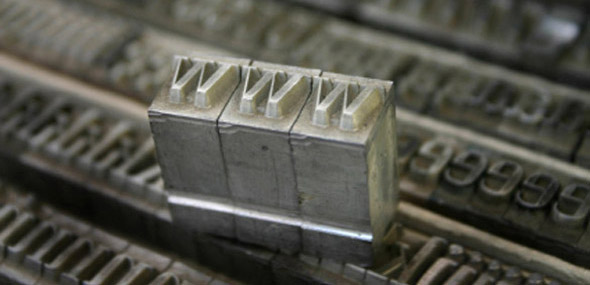
The Media + Awards Digest is a section of the Said and Done newsletter. Subscribe
Office of the Dean | 28 October 2021
Dear Friends,
The fall brings several exciting accolades and new positions to celebrate.
Joshua D. Angrist, Ford Professor of Economics, is a winner of the 2021 Sveriges Riksbank Prize in Economic Sciences in Memory of Alfred Nobel. Angrist shares half the award with Guido Imbens of the Stanford Graduate School of Business; the other half goes to David Card of the University of California at Berkeley. All three scholars have long collaborated to upgrade empirical research in the field.
Media coverage of the Nobel news was widespread, noting practical applications of the work. The New York Times referenced “research tools that help economists use real-life situations to test big theories, like how additional education affects earnings.” The Economist notes that this year’s prize “celebrates the ‘credibility revolution’ that has transformed economics since the 1990s.”
Two members of our community have taken new leadership roles: Lily Tsai, Ford Professor of Political Science and founder of the MIT Governance Lab, is now serving as the Chair of the MIT Faculty, and Economics alumna Rebecca Blank PhD '83, has been announced as the next president of Northwestern University, a position she will assume in the summer of 2022.
Turning to voting rights, a WBUR Cognoscenti piece questions Massachusetts as a “democratic bastion” given that considerable political inequality persists in the Commonwealth. The publication cites research by Political Science professors Adam Berinsky and Ariel White.
Foreign policy and security developments are causing Asia experts to take note. M. Taylor Fravel, political science professor and director of the Securities Studies Program, contributed perspective to ABC News, The Guardian, and Axios. For the latter, he commented that, “The most important element of [U.S.-China] competition globally is economics and economic capabilities, which makes it different from the Cold War.” The Washington Post covered North Korea’s latest defense exhibition, including an apparent hypersonic weapon. Observers, including Vipin Narang, MIT political science professor and nuclear security expert, questioned its legitimacy.
In other news, Joshua Sokol SM ’15, an alum of our Graduate Program of Science Writing, published an extensive piece in Science exploring the threats and opportunities of crowding low-Earth orbit with thousands of satellites.
With warm best wishes for a sucessful fall term,
MIT SHASS Communications
AWARDS AND HONORS
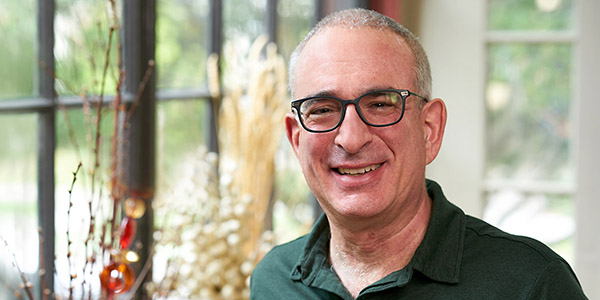
Joshua Angrist, Ford International Professor of Economics at MIT; photo by Lillie Paquette
ECONOMICS
MIT economist Joshua Angrist shares the 2021 Nobel Prize
Cited for work building the foundations of “natural experiments” in economic research, Angrist is honored along with David Card and Guido Imbens.
MIT News
THE ECONOMIST
A real-world revolution in economics
"This year’s Nobel prize celebrates the “credibility revolution” that has transformed economics since the 1990s. Much of today's notable work is based on analysis of real-world data. Host Rachana Shanbhogue speaks to two of the winners, David Card and Joshua Angrist, and our Free Exchange columnist Ryan Avent explains the significance of their work on a range of questions the economics fields can address."
Video at The Economist
THE NEW YORK TIMES
The Nobel in economics goes to three who find experiments in real life.
Article explores the work of Professor Joshua Angrist, a recipient of the 2021 Nobel Prize in Economics, for his work developing “research tools that help economists use real-life situations to test big theories, like how additional education affects earnings.” Angrist and his fellow recipients David Card and Guido Imbens “ushered in a new phase in labor economics that has now reached all fields of the profession.”
Story at The New York Times
WGBH
MIT economist Jonathan Gruber on the Nobel award to colleague Joshua Angrist
Gruber highlighted the legacy and importance of the Nobel Memorial Prize in Economic Science and how Joshua Angrist’s work on “natural experiments” in the field, for which he received the Nobel Prize, has contributed to the rise in prominence of empirical economic research.
Commentary at WGBH
________________________
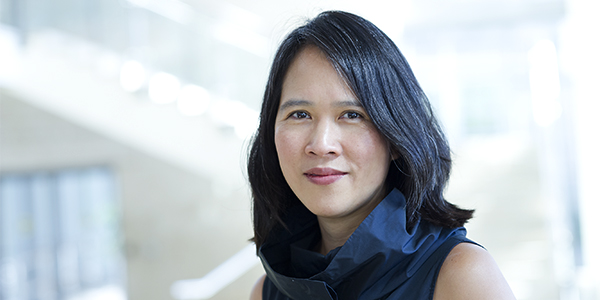
Lily L. Tsai, Ford Professor of Political Science; Photo by Stuart Darsch
POLITICAL SCIENCE
Lily L. Tsai serves as the new Chair of the MIT Faculty
Tsai, Ford Professor of Political Science, succeeded Rick Danheiser as Chair of the Faculty on July 1, 2021. Joining Lily as faculty officers are Chris Schuh (Materials Science and Engineering) and Martha Gray (Electrical Engineering and Health Sciences and Technology) who will serve, respectively, as Associate Chair and Secretary of the Faculty.
Story in the MIT Faculty Newsletter
________________________
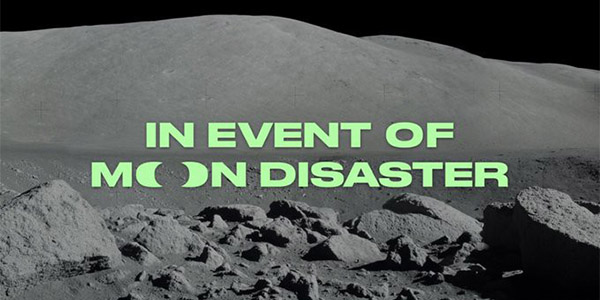
MIT CENTER FOR ADVANCED VIRTUALITY
“In Event of Moon Disaster” wins 2021 Emmy Award
The acclaimed project offers a deep dive on deepfakes. Directed by Francesca Panetta and Halsey Burgund, the project was produced by the MIT Center for Advanced Virtuality, supervised by H. Fox Harrell. Supporters include the MIT Open Doc Lab, MIT Open Learning, IDFA Doc Lab, Mozilla, Scientific American, Canny AI, and ReSpeecher.
Story by Open Learning | About + The Team
_______________________
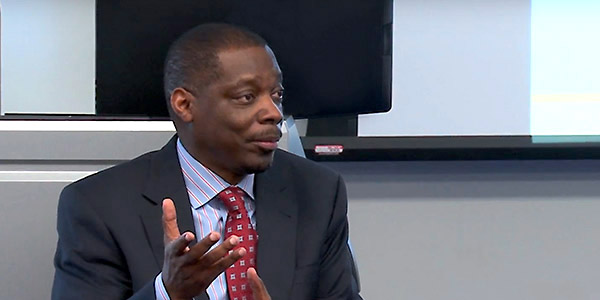
Darrell Gaskin, SM '87, Richardson Professor in Health Policy and Management, Johns Hopkins University
ECONOMICS
Darrell Gaskin SM '87 elected to the National Academy of Medicine for 2021
Gaskin, the Richardson Professor in Health Policy and Management at Johns Hopkins University, earned his degree from MIT Economics in 1987. A health economist who advances community, neighborhood, and market-level policies and programs that reduce health disparities, he is cited by the NAM “For his work as a leading health economist and health services researcher who has advanced fundamental understanding of the role of place as a driver in racial and ethnic health disparities.”
Story | Gaskin's webpage
________________________
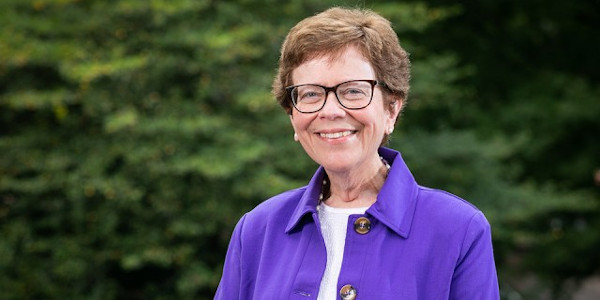
Rebecca M. Blank; photo via Shane Collins, Northwestern University
ECONOMICS
Rebecca Blank PhD '83 to serve as the next president of Northwestern University
After earning her PhD in economics at MIT, Blank also taught in the Department of Economics for a year, later served in the U.S. Department of Commerce from 2009-2013, and is currently Chancellor of the University of Wisconsin-Madison. She will assume the presidency of Northwestern in the summer of 2022.
Story at Forbes | Story at Times Higher Education
________________________
SECURITY STUDIES PROGRAM
PhD student Aidan Milliff named 2021 Peace Scholar by U.S. Institutes of Peace
Milliff's dissertation asks: In complex political violence scenarios, like inter-communal conflict in South Asia, what determines the strategies that people pursue to keep themselves safe? Aidan develops a political psychology theory, situational appraisal theory, which focuses on variation in individual interpretations of violent environments to explain civilian behavior.
Story
________________________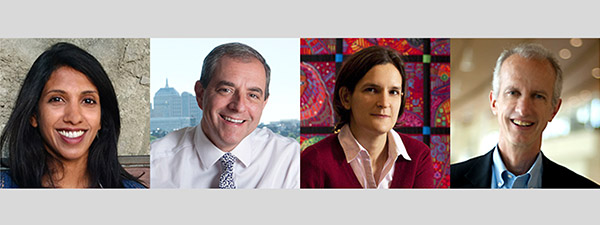
L to R: Athulya Aravind, Linguistics; David Autor, Economics; Esther Duflo, Economics; and Ben Schneider, Political Science.
ECONOMICS, LINGUISTICS, POLITICAL SCIENCE
Four MIT SHASS faculty honored as "Committed to Caring" for 2021-23
We join the Institute community in a heartfelt salute to all 15 MIT professors recognized for exceptional mentorship of graduate students during the disruptions of the pandemic — and give a local shout-out to the four MIT SHASS professors honored: Athulya Aravind, Department of Linguistics; David Autor, Department of Economics; Esther Duflo, Department of Economics; and Ben Schneider, Department of Political Science. Bravo, all!
Story at MIT News
________________________
Welcome Event for Chancellor Melissa Nobles
“It was wonderful to catch up with so many members of our community at the celebration,” said Nobles, MIT's new Chancellor, Professor of Political Science, and former Dean of MIT SHASS, seen here greeting well-wishers.
Scene at MIT
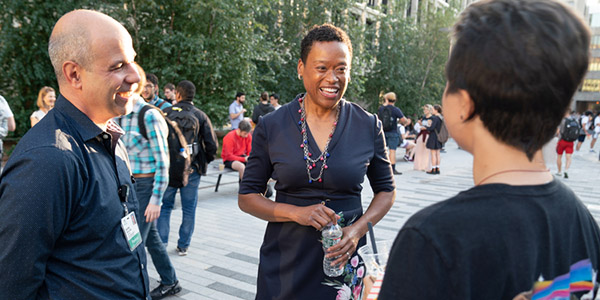
“I am honored to be serving MIT in this new role, and I very much look forward to working alongside our amazing students and the wonderful teams throughout the Office of the Chancellor to educate the whole student and to deepen the meaning of an MIT education.”
— Melissa Nobles, MIT Chancellor, and Professor of Political Science
WELCOMING NEW FACULTY
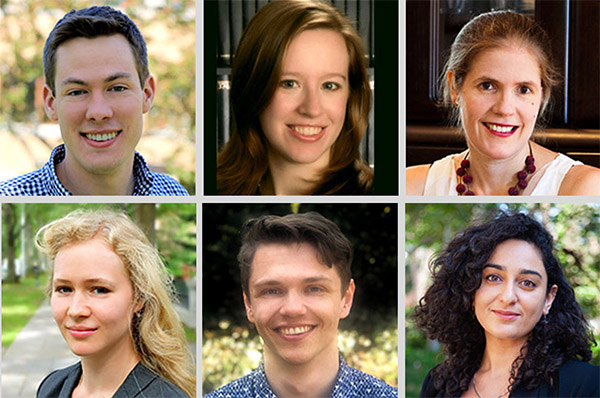
MIT SHASS
Meet the New Faculty
Top Row, L to R: Ian Ball, Assistant Professor of Economics; Sam Berstler, Assistant Professor of Philosophy; Wiebke Denecke, Professor of Literature. Lower Row, L to R: Mariya Grinberg. Assistant Professor of Political Science; Christian Wolf, Assistant Professor of Economics; Sulafa Zidani, Assistant Professor of Comparative Media Studies. For more information and biographical notes:
Visit the New Faculty Gallery
________________________
HISTORY
Meet David Shane Lowry '03 ('07) | Distinguished Fellow in Native American Studies
Lowry, SB ’03 ('07) in Anthropology, has returned to MIT as a Distinguished Fellow in Native American Studies, based in the MIT History section. In this role, Professor Lowry, a member of the Lumbee Tribe, is leading a conversation about MIT and the Indigenous peoples of the U.S. Learn more about the conversation and 21H.283, Professor Lowry's class for MIT undergrads.
Lowry’s webpage | Commentary by President Reif: Facing a Difficult History
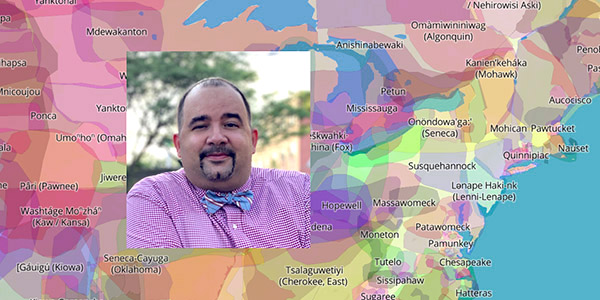
Dr. David Shane Lowry, Distinguished Fellow in Native American Studies; Detail, Indigenous territories map, via Native Land Digital
MEDIA DIGEST
STRENGTHENING DEMOCRACY
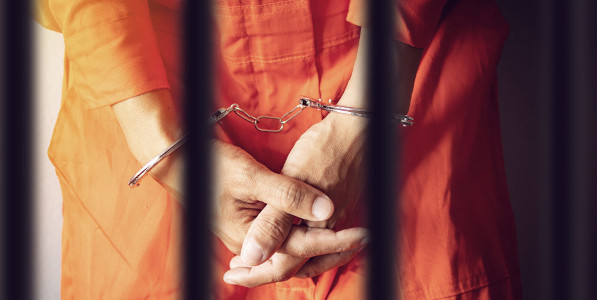
Prof. Ariel White examines the effect of previous incarceration on voting; photo via Getty Images
THE ECONOMIST
Republicans’ trust in democracy has plunged since 2016 | Charles Stewart III
Voters from both parties are least trusting when they lose by a narrow margin.
Story at The Economist
WBUR
Mass. is not the democratic bastion you think it is | Adam Berinsky, Ariel White
Reforms like mail-in voting and expanded early voting are unquestionably important, but do little to redress political inequality. Research shows those reforms should not be credited for record 2020 turnout, and some, like Berinsky, have cautioned that they can actually exacerbate political inequality. Professor White has shown that even those released after serving short jail sentences are less likely to vote than they would be otherwise.
Story at WBUR
MAKING A JUST SOCIETY
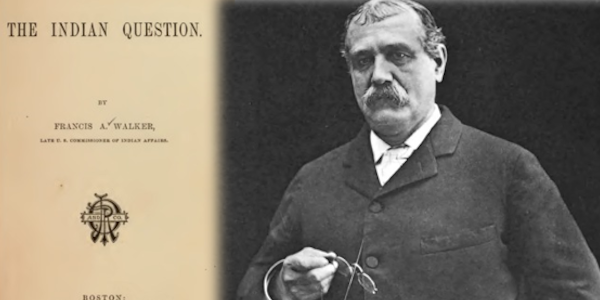
Francis Amasa Walker, third president of MIT, with his pamphlet, "The Indian Question."
TIME
MIT reckons with Walker's role in forced removal of Native tribes | David Shane Lowry
“Walker might be the face of Indian genocide, and it is troubling that his name is memorialized at MIT,” says Lowry, the Distinguished Fellow in Native American Studies at MIT. MIT received at least 366 acres scattered across California and a number of Midwest states, High Country News reported last year. At the time, their sales helped generate more than $1.6 million in today’s dollars. Lowry cautions that those land and revenue estimates are likely conservative and says that students in his course on the Indigenous History of MIT are working on a fuller accounting.
Story at TIME Magazine
________________________
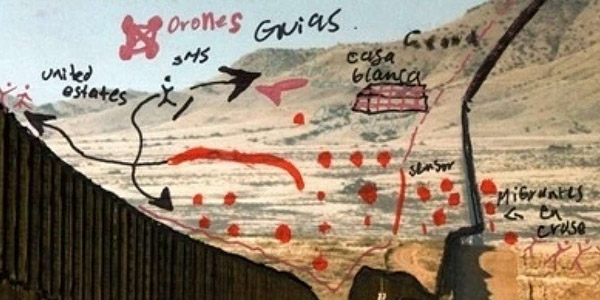
A map of dangers as resources made by a young Mexican border crosser.
ANTHROPOLOGY
The damage wrought: immigration before, under, and after Trump | Heather Paxson
The anthropologists and activists gathered for this series have long been on the front lines fighting for migrant and racial justice. This collection situates the damage wrought under the Trump presidency within centuries of racialized exclusions and imagines a way forward guided by those who are most impacted and are forced to employ multiple activisms to challenge capitalist and carceral forces.
Series at Society for Cultural Anthropology
CRITICAL PERSPECTIVE
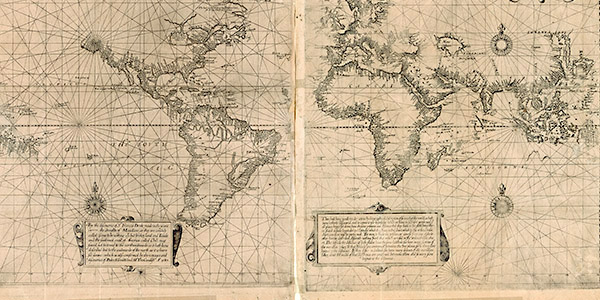
Detail, from Map by Edward Wright, 1599: "A true hydrographical description of so much of the world as hath beene hetherto discovered, and is come to our knowledge” Via the New York Public Library, Digital Collections
AMERICAN FRIENDS OF THE HAKLUYT SOCIETY
How to Teach Hakluyt | Mary Fuller, Professor of Literature
"What can we do with Principal Navigations and why would we want to do it? The scholarly landscape of 2021 offers a world of new affordances and new questions. I’ll tackle one of them: if only a small proportion of Hakluyt’s sources are original to PN, what kinds of questions are enabled by looking at a text in the context of the compilation?"
Commentary | Related: "How to Read Hakluyt's Principal Navigations, 1598-1600" | About Principal Navigations
SCIENCE COMMUNICATIONS
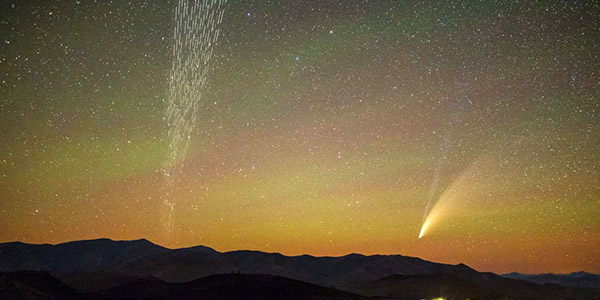
Starlink satellite tracks seen next to comet Neowise, daho's Crates of the Moon. Time-lapse photo stack by Matt Dieterich, August 2020
SCIENCE
The fault in our stars | Joshua Sokol SM '15
Satellite swarms are threatening the night sky. Is low-Earth orbit the next great crucible of environmental conflict? You’ve probably been a little distracted in the last two years, but in that same period, a new conversation with global stakes has opened up above our heads.
Story in Science
ECONOMICS
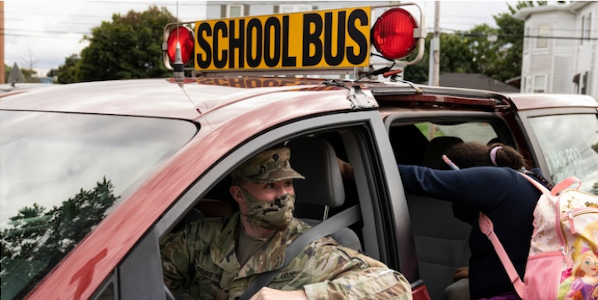
National Guard transports students to middle school in Chelsea, MA; image via The Washington Post
THE WASHINGTON POST
Welcome back to school. Your new driver is wearing fatigues. | David Autor
"The pandemic is so counterintuitive and paradoxical,” said Autor. Economists are racing to understand the labor shortage, he said, but the most prevalent explanations — that government aid and uncertainties around child care have diminished the willingness to work — are not yet supported by data. Autor believes many workers are simply changing tracks. Some people 'have realized, "Wow, those jobs are more terrible than I realized," and they’re trying to switch to new activities,’ he said."
Story at The Washington Post
VOX
Immigrants could fix the US labor shortage | Abhijit Banerjee, Esther Duflo
Banerjee and Duflo write that immigrants are highly mobile and willing to go where there is opportunity. The US could encourage those tendencies by introducing economic incentives, such as giving immigrants a small, one-time “transition grant” if they settle in areas with labor shortages, Banerjee said.
Story at Vox
SECURITY STUDIES
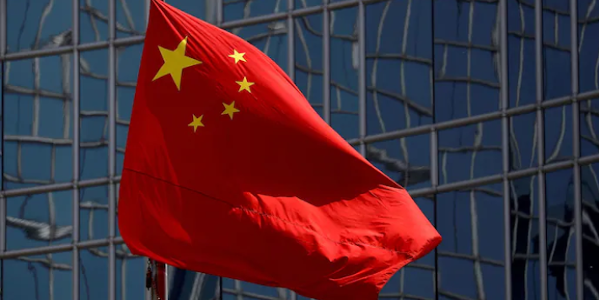
The Chinese national flagflies in Beijing; photo via Thomas Peter/Reuters
THE WASHINGTON POST
China’s hypersonic vehicle expands strategic and nuclear systems | M. Taylor Fravel
The big takeaway, said Fravel, is U.S.-China dialogue about strategic stability “is incredibly urgent.” Developments are accelerating rapidly, he said, and “there just isn’t much communication about them between the U.S. and China.”
Story at The Washington Post
ABC NEWS
China's reported hypersonic weapon test raises security concerns | M. Taylor Fravel
Fravel acknowledges that the new Chinese capability "does expose the limits of the U.S. missile defense system" designed to counter ballistic missiles from North Korea and Iran," but he does not see a new Chinese glide vehicle as destabilizing. "Given the continued large gap in warhead stockpiles, whereby China possess only a fraction of those of the U.S. this particular test should not upset the U.S.-China nuclear balance or be destabilizing in that way."
Story at ABC News
POLITICO
Is China's FOB a BFD? | Vipin Narang
“One reason why the U.S. pursues counterforce and missile defense capabilities is precisely to force adversaries to invest a lot of time and resources to develop crazy experimental systems,” Narang said.
Story at Politico
________________________
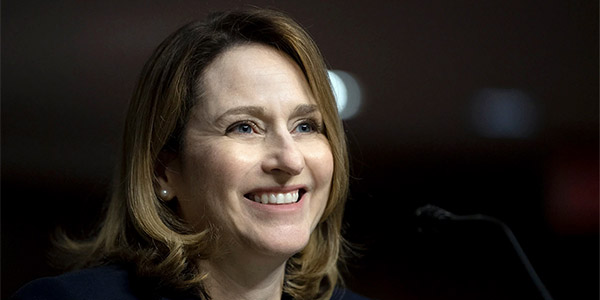
Kathleen Hicks PhD '10, Political Science, Security Studies Program
"If there's one thing we do exceptionally well here at DOD, we plan thoroughly. Climate needs to be a part of how we think about the future."¯
— Kathleen Hicks PhD '10, Deputy Secretary of Defense
NPR
Climate change is a risk to national security, the Pentagon says | Kathleen Hicks
MIT Security Studies alumna and Deputy US Secretary of Defense Kathleen Hicks tells NPR, "If there's one thing we do exceptionally well here at DOD, we plan thoroughly. Climate needs to be a part of how we think about the future."
Conversation at NPR
________________________
AXIOS
The new cold war panic | M. Taylor Fravel
"The most important element of [U.S.-China] competition globally is economics and economic capabilities, and not military power and military capabilities, which makes it different from the Cold War," Fravel told Axios.
Story at Axios
THE WASHINGTON POST
N. Korea displays apparent new weapon | Vipin Narang
Narang said the missile had a similar look to the Chinese hypersonic glider, the DF-17. “It’s very hard to tell publicly if the hypersonic missile is legit or how it performs. The intelligence community would have likely tried to characterize the [hypersonic glide vehicle] when it was tested, but the pictures released tonight are what North Korea wants us to see,” Narang said.
Story at The Washington Post
THE GUARDIAN
Taiwan and China: line that Biden must tread is finer than ever | M. Taylor Fravel
“It’s absolutely unprecedented in the modern history of these flights that China has run into Taiwan’s Air Defence Identification Zone,” said Fravel. “Each day breaks the preceding record for the total number of flights on a single day.” . . . The US relationship with Taiwan falls well short of a security pact, but Fravel said that in the event of a Chinese attack there was a general expectation in the region that the US would come to the island’s defence.
Story at The Guardian
PUBLICATIONS DIRECTORY
A Convenient, One-Page Portal
Here you will find all the online channels, newsletters, and publications produced by the School's 20+ departments, sections, programs, and centers. Look for current research, news, and commentaries from each of the MIT SHASS fields.
Visit the Publications Directory
The Media + Awards Digest is a section
of Said and Done, the School's online digest.
EXPLORE
Follow MIT Now
Updates on the return to campus
Subscribe to Said and Done
10 issues a year
Making a Better World | Research
Browse
Making a Just Society
Explore the Resources
Solving Climate
Browse the Commentaries | MIT Climate Portal
Ethics, Computing, and AI
Full Series
Computing and AI | Humanistic Perspectives
Full Series
Perspectives for the Pandemic
Explore the Series
SHASS on MIT News
Research and Features
MIT Campaign for a Better World
Story | Join Us
Published by MIT SHASS Communications
Office of the Dean, MIT School of Humanities, Arts, and Social Sciences
Editor and Designer: Emily Hiestand
Publication Associate: Alison Lanier
Media Relations Manager: Stephen Oakes
Published 28 October 2021




